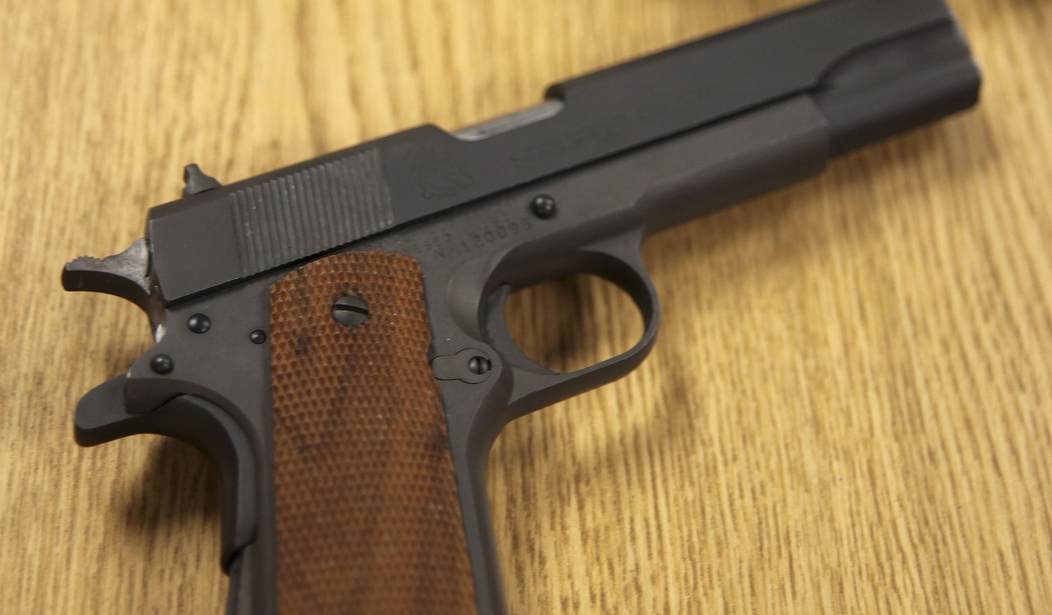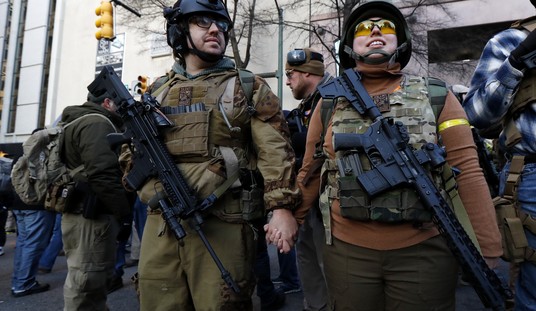While the Second Amendment Sanctuary movement is steadily gaining ground all across the country, one Rhode Island town is moving to scrap a resolution approved two years ago. Since the original vote in 2019, the Riverton town council has held elections, and the pro-Second Amendment majority has been replaced with new council members who say the resolution is “inappropriate,” because it reflected the personal opinions of the council members and not the town itself.
Of course, you could argue that the repeal of the resolution is just as personal. Based on the arguments made by one of resident pushing to get rid of the resolution, it certainly seems that the repeal effort is based on some flawed assumptions about the efficacy of one of the state’s newest gun control laws.
When the Second Amendment Sanctuary Town resolution was put forth, [Christine] Bandoni said there were fears about the red flag law. That law allows family members and law enforcement to ask a court to temporarily remove firearm access when there is evidence someone poses an immediate threat to themselves or others.
“The fears about the law never materialized,” Bandoni said. “No one’s guns were being taken away without due process,” she said. Instead, between June 2018 and 2019 there were 33 occasions in Rhode Island when the red flag law saved lives, she said.
I was curious about where Bandoni got her information, and I suspect that she’s citing this news story from late 2019 that talks about the 33 times that the red flag law was used between June 2018 and November of 2019. The problem with her statement is two-fold. First, the due process concerns are still valid, given that firearms are seized first and hearings involving the subject of the red flag order happen later. It’s also simply not true that there were 33 occasions where the red lag law saved lives.
As of Oct. 31, state and local police across Rhode Island had invoked the red flag law on 33 occasions since its adoption in June 2018. The law allows police to petition a court for an “extreme risk protection order,” which allows them to confiscate firearms from individuals believed to be at “imminent risk” of killing themselves or others.
Cranston has used the law at least eight times; Cumberland, seven times; Woonsocket, three times; Warwick and Johnston, twice; West Warwick, North Smithfield, Narragansett, Hopkinton, South Kingstown, Warren, Central Falls, Barrington and Westerly, once each; and the state police twice, according to a Journal analysis of state court data. (The count does not include Cranston’s Dec. 23 suicide intervention.)
The records of all of these cases are sealed, so it is unclear what prompted each of these actions, but summary data indicate that firearms were seized in at least five of the cases. No firearms were seized in at least six others. The outcome in the other cases is displayed as a question mark.
It sounds like there’s a strong possibility that the majority of red flag orders didn’t actually seize any firearms at all. There are also several cases where orders were granted on a hunch rather than any real evidence that someone posed a danger to themselves or others. And speaking of evidence, there’s virtually none that prove any of these seizures actually prevented a crime or a suicide from taking place.
Woonsocket Police Chief Thomas F. Oates III recalls the better-safe-than-sorry occasion when his department invoked the red flag law to obtain a court order allowing them to remove firearms from the home of a man who had repeatedly threatened “to kill the police chief in Woonsocket when he had the chance.”
The man had made the threat a number of times in therapy sessions.
“It was brought to our attention. … We didn’t know if he had firearms or not,” Oates said. “He claimed he did have a firearm, described … what it was. We went through the process, got a search warrant, first and foremost to see if he did possess it.
“The long and the short, in this particular case, he did not have the firearm he said he had, but just by doing that, it gave us the ability to vet this out. He [later] claimed he never had any of that intention, just something he’d said.”
“It all worked out,” Oates continued. “We were able to clearly evaluate the threat and realize there wasn’t any threat,” but without “that legal mechanism … we really wouldn’t have had anything else other than to just go knock on the door. ”
It all worked out, except for the guy who had his home searched and was deemed to be a danger when the police now say he wasn’t a threat. That doesn’t sound like much of a success to me. The fact that only one request was denied in the state also suggests that judges are rubber-stamping their approval of the requests; giving in to the same “better safe than sorry” mentality that led the Woonsocket police to file a red flag order first and investigate later.
I’d say the conditions that led to the Rivertown town council originally passing the Second Amendment Sanctuary ordinance still apply. Frankly, they’ve only gotten worse with the election of Joe Biden and the prospects of new federal gun control laws. Instead of simply repealing the resolution, maybe the town should hold a referendum on the issue and see how it turns out. If the anti-gun advocates on the town council are so sure that they’re representing the views of a majority of residents, they have nothing to lose… except their credibility if the residents of Riverton were to vote to uphold the Second Amendment Sanctuary proclamation.









Join the conversation as a VIP Member